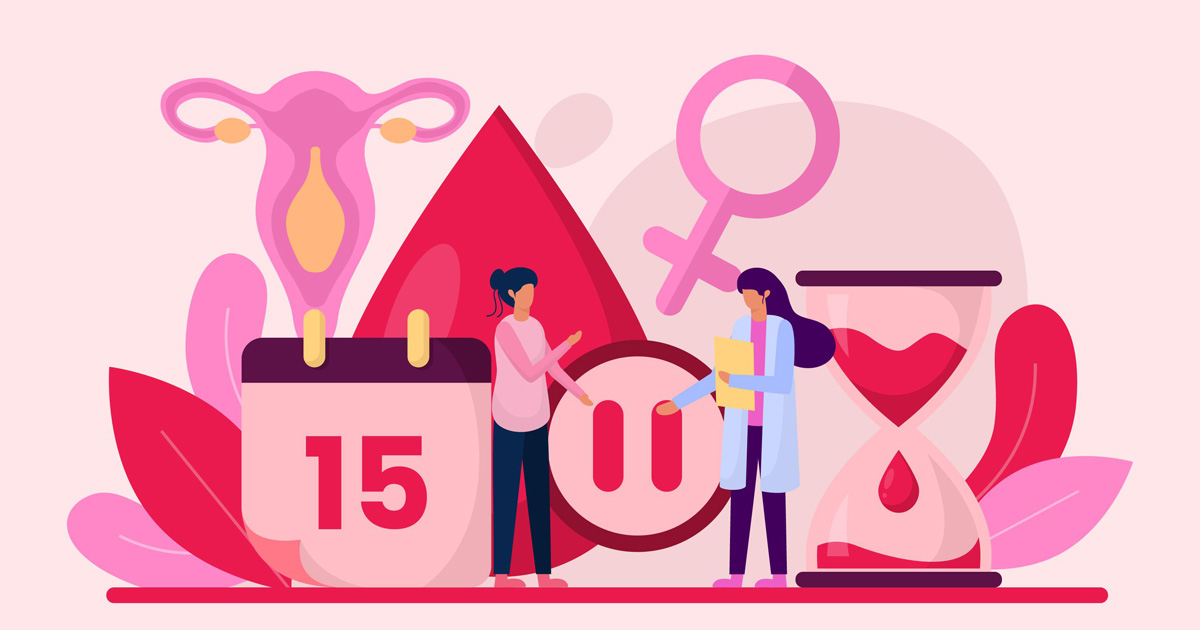By Dr Lydia T. Chibwe and Dr Sindiso Nkomo of the Centre for Human Rights at the University of Pretoria
In Africa, millions of girls struggle to access education, and one of the most overlooked barriers is period poverty. A lack of affordable menstrual products, limited sanitation facilities and pervasive cultural taboos around menstruation result in many girls missing school every month. This disrupts their academic progress, harms their self-esteem and diminishes their future opportunities. The situation is even worse for girls with disabilities.
As we reflect on the African Union’s theme for 2024, ‘Educate and Skill Africa for the 21st Century’, and observe World Children’s Day on 20 November, it’s clear that we have a shared responsibility to make sure menstruation is no longer a barrier to the education and dignity of girls. One of the main challenges they face during their menstrual period is access to clean water and safe, private facilities. For girls with disabilities, a lack of access to water and disability-accessible sanitation and hygiene facilities prevent them from managing their menstrual cycles comfortably.
Without access to basic menstrual products or clean, private sanitation facilities, girls are left with few options. Many miss up to five days of school each month – that’s nearly two months of missed classes a year. According to the United Nations, about one in 10 girls in sub-Saharan Africa stay out of school during their menstrual cycle; this accounts for up to 20% of the school year. In South Africa, about 30% of girls stay home from school each month, while in Zimbabwe, 72% of menstruating schoolgirls cannot afford sanitary products, with 62% regularly missing school and most being unaware of available products. A 2016 study in Ghana found that 95% of girls sometimes skipped school because of menstruation, partly due to cultural stigma. In Uganda, 28% of girls miss school during their period and nearly a quarter of girls aged 12 to 18 drop out when they start menstruating. These statistics reveal the widespread impact of inadequate sanitation and period poverty on girls’ education.
Absenteeism from school has real consequences: it lowers the academic performance of schoolgirls, increases drop-out rates and places them at a disadvantage compared to boys. Also, disrupted or limited education raises the likelihood of child marriage. Access to education plays a crucial role in supporting a smooth transition to adulthood and can alleviate gender inequality. In a world where access to education is already stacked against girls, period poverty is a cruel and unnecessary barrier that must be overcome.
Beyond the impact on education, menstrual health challenges also affect the confidence and mental well-being of girls. Many fear the stigma or bullying that come with being open about menstruation in environments where teachers and peers lack understanding or empathy. Without basic menstrual education, girls internalise this shame and isolation. For them, periods are something to hide, and this mind-set undermines the belief that they have an equal right to occupy these educational spaces.
Girls with disabilities are burdened with added challenges in managing their menstrual cycles hygienically and with dignity, repeatedly facing stigmas related to both the social norms around gender and menstruation, and having a disability. Menstrual health challenges also affect the enjoyment of some rights such as the rights to health, dignity, reproductive care and non-discrimination.
To address this issue and achieve various Sustainable Development Goals (SDGs), as adopted by the UN, particularly SDG 4 (Quality Education) and SDG 5 (Gender Equality), we need a transformative approach that empowers girls to pursue their education without interruption. This includes infrastructural improvements that provide safe, clean and private sanitation facilities in schools. Many rural and under-resourced schools don’t even have basic bathrooms, let alone facilities equipped for girls to manage their periods. Investing in these spaces is critical; these facilities send a message that girls belong in schools just as much as boys do.
Education and community awareness are equally essential. Menstrual health education should not be for girls only – it should involve communities. When parents, teachers and male students understand that menstruation is natural and healthy, it begins to break down stigma and build support. Including community leaders in these efforts and integrating menstrual health education into school curricula will normalise the conversation and help girls feel safer and more supported at school.
Policymakers must also step up. Governments need to prioritise menstrual health and advocate for policies that put these critical resources into the hands of the girls who need them most. Policies that make menstrual products freely available in schools, combined with national programmes enforcing sanitation standards, can end this cycle of absenteeism. We have a historic opportunity to align national education policies with the African Union’s 2024 theme of educating and empowering Africa’s future. Creating policies that address menstrual health in schools supports educational goals and the broader empowerment of girls across the continent.
This is the work of building a brighter future. When prioritising menstrual health, we empower girls to stay in school, gain confidence and dream bigger. An educated girl is an empowered girl who has the potential to uplift her family, community and society. She is more likely to become financially independent, contribute to the local economy and advocate for the next generation of girls.
As activists, advocates, educators and members of these communities, we must break down the barriers that keep girls from reaching their potential. By supporting comprehensive infrastructure, community education and policy changes as well as addressing the stigma and discrimination against girls with disabilities, we can transform schools into places where girls feel empowered to learn, grow and take on the world without the worry of missing out on opportunities due to something as fundamental as menstrual health. This World Children’s Day, let us commit to a future where every girl has the right to an uninterrupted education and the dignity she deserves.


